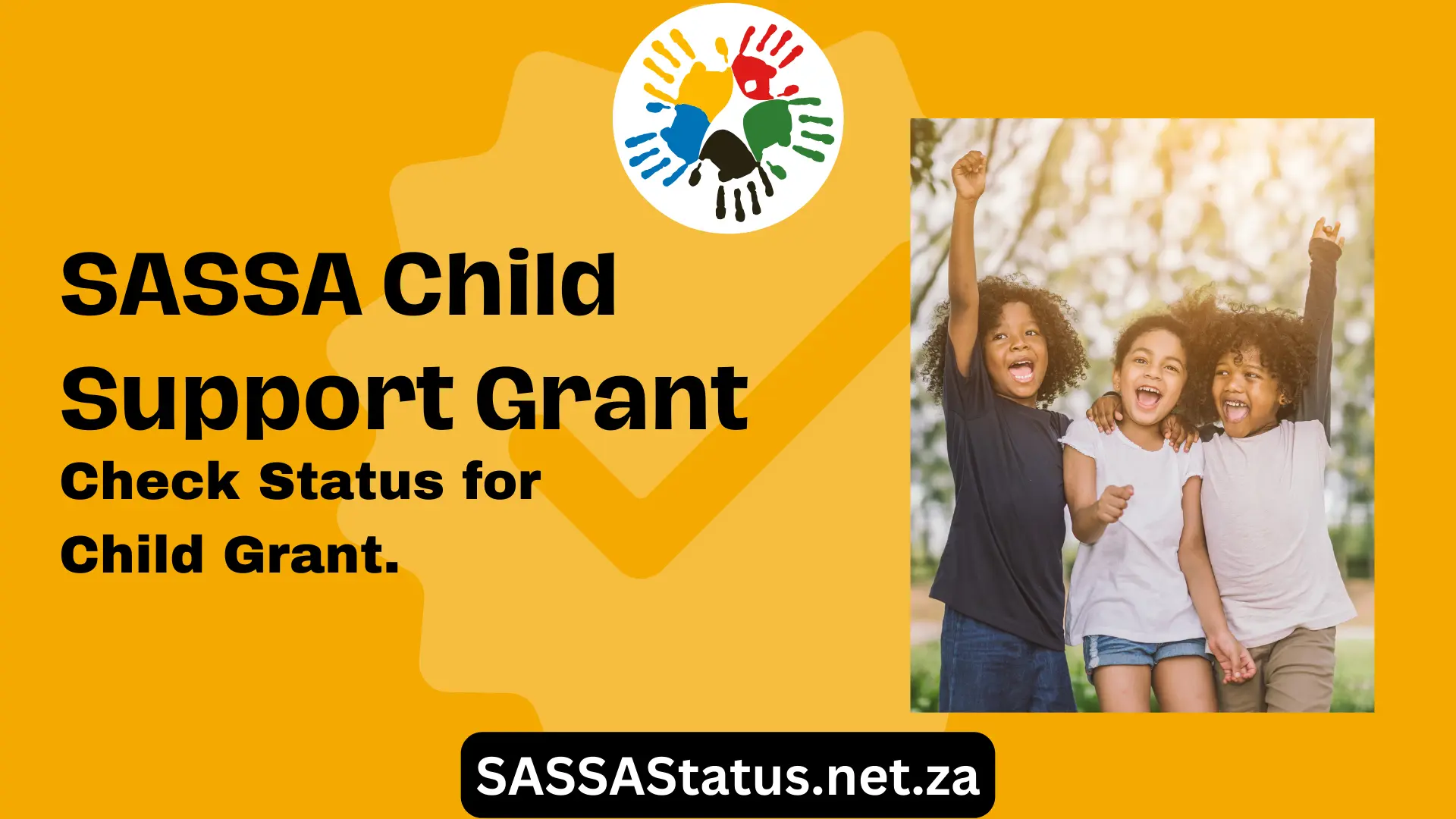SASSA Child Support Grant – How to Apply, Criteria and More
If you find yourself in financial need while caring for a child, there is assistance available in the form of a child support grant. This grant aims to provide financial support to individuals facing economic challenges, helping them to meet the expenses associated with raising and caring for the child under their guardianship.

If you qualify, you will receive a monthly allowance of R510 per child, comprising a top-up of R500 along with an additional R250. For this allowance, you have to meet certain eligible requirements. Let’s dive into the steps of how to check the eligibility criteria for this child support grant and more.
How Do You Know If You Qualify?
To determine eligibility, certain criteria must be met:
1. Primary Caregiver Status
The applicant must serve as the child’s primary caregiver, taking on roles such as a parent, grandparent, or a responsible individual aged 16 or older leading a family. Non-parental caregivers need to substantiate their status through documentation like an affidavit from a law enforcement official, a social worker’s report, a sworn statement from the biological parent, or a letter from the child’s school principal.
2. South African Citizenship or Permanent Residency
Eligibility is limited to individuals who are South African citizens or hold permanent resident status.
3. Income Thresholds
Single applicants should not exceed an annual income of R52,800. For married individuals, the combined household income must not surpass R105,600 annually.
Applicants must adhere to these outlined conditions to qualify for the specified assistance program. The child must meet the following criteria to be eligible for the grant:
How Much Will You Get Child Support Grant?
You will receive a monthly allowance of R510 per child, comprising a top-up of R500 along with an additional R250.
How Will You Be Paid Child Support Grant?
The South African Social Security Agency (SASSA) distributes grants through different methods. Recipients can receive cash at a designated pay point on a specified day. Electronic deposits are made into a bank or Postbank account, though there may be potential service charges by the bank. Grants can also be disbursed through an institution acting as the grant administrator.
In the event that you are unable to collect the funds personally, you have the option to appoint a procurator at the SASSA office or grant someone power of attorney to collect the grant on your behalf.
When May The Child’s Grant Be Reviewed?
SASSA has the authority to initiate a review of the child’s grant, and this determination is based on the income information provided during the grant application process.
Notification of the review date or the deadline for submitting a life certificate (confirmation of continued existence) will be issued three months in advance.If the grant is received through a bank, institution, or procurator, an annual life certificate for the child must be completed at the SASSA offices.
When May The Child’s Grant Be Suspended?
When Will The Child’s Support Grant Lapse?
The child’s grant will cease under the following circumstances:
What You Should Do?
To initiate the application process with the South African Social Security Agency (SASSA), it is imperative to visit the nearest SASSA office. Ensure you bring the following documentation:
What If Your Application Is Not Approved?
If your application is unsuccessful, SASSA will provide written notification detailing the reasons for the denial. If you find the decision unsatisfactory, you have the option to appeal to the Minister of Social Development at the national office of the Department of Social Development. It is essential to initiate the appeal process within 90 days from the date of notification regarding the unsuccessful application.
How Long Does It Take?
The processing of your application may extend up to three months. Upon approval of your grant, disbursement of funds will commence, retroactively compensating you from the date of your initial application.
How Much Does it Cost?
The service is provided at no cost. Application forms are not accessible online; however, you can obtain them in person from your nearest (SASSA) office.
Contact SASSA for More Queries
If you’re still confused and have more queries related to your status, then do contact SASSA through verified channels:
Conclusion
The Child Support Grant in South Africa serves as crucial financial aid for individuals facing economic challenges while caring for a child. To qualify, caregivers must meet specific criteria, and the application process involves providing detailed documentation. The grant is paid monthly, and it is subject to periodic reviews.
Caregivers should be aware of the circumstances under which the grant may be suspended or lapse. In case of denial, there is an appeals process available. Overall, the Child Support Grant plays a vital role in providing essential financial support to those in need, contributing to the well-being of children and their caregivers.